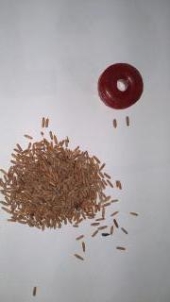
 5
5




 12
12




Please give me your thoughts on my Affordable, double-paned earthbag window concept

















 7
7




 9
9




I want to be 15 again …so I can ruin my life differently.
 8
8




It's never too late to start! I retired to homestead on the slopes of Mauna Loa, an active volcano. I relate snippets of my endeavor on my blog : www.kaufarmer.blogspot.com
 10
10




"You must be the change you want to see in the world." "First they ignore you, then they laugh at you, then they fight you, then you win." --Mahatma Gandhi
"Preach the Gospel always, and if necessary, use words." --Francis of Assisi.
"Family farms work when the whole family works the farm." -- Adam Klaus
 4
4




Invasive plants are Earth's way of insisting we notice her medicines. Stephen Herrod Buhner
Everyone learns what works by learning what doesn't work. Stephen Herrod Buhner
 9
9






 4
4




 7
7





Please give me your thoughts on my Affordable, double-paned earthbag window concept

















 2
2




 5
5




 7
7




“We can complain because rose bushes have thorns, or rejoice because thorn bushes have roses.” — Abraham Lincoln
 3
3




 4
4




"Si hortum in bibliotheca habes, nihil deerit." [If you have a garden and a library, you have everything you need] Marcus Tullius Cicero in Ad Familiares IX, 4, to Varro.
 3
3




 3
3




 3
3




In the south when the wind gets to 75 mph they give it a name and call it a hurricane. Here we call it a mite windy...
 3
3




See our project at https://permies.com/t/59741/HR-homestead-future
 3
3




 5
5




Permaculture...picking the lock back to Eden since 1978.
Pics of my Forest Garden
 3
3




Forever creating a permaculture paradise!

| I agree. Here's the link: http://stoves2.com |



